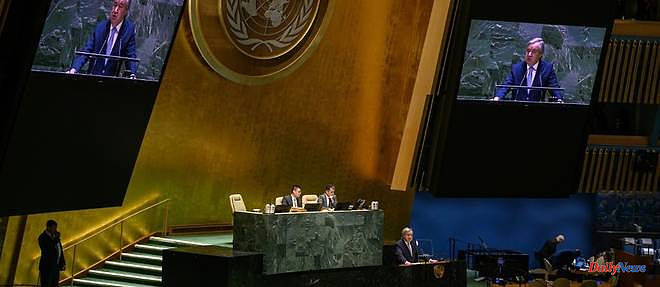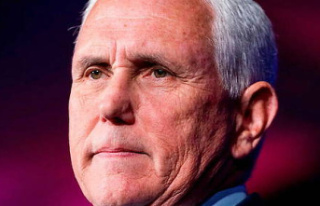After an "epic" battle for Vanuatu on the front line of the devastation linked to global warming, the UN General Assembly on Wednesday adopted to applause a "historic" resolution calling on international justice to clarify the "obligations" of States in the fight against climate change.
"Historic" progress, "a landmark moment", "triumph of international climate diplomacy"... NGOs and many states among the 130 co-sponsors of the text welcomed in the strongest terms this text adopted by consensus .
The International Court of Justice (ICJ) will have to answer the question of the "obligations incumbent on States" in the protection of the climate system, "for present and future generations".
"Together, you are writing history", launched UN Secretary General Antonio Guterres, believing that even non-binding, the future opinion of the United Nations judicial body could help governments to "take more climate action courageous and stronger that the world so desperately needs".
“Today we witnessed an epic victory for climate justice,” commented Ishmael Kalsakau, Prime Minister of Vanuatu devastated in early March by two powerful cyclones in a few days.
It is also "a victory for people and communities around the world on the front lines of the climate crisis", commented Lavetanalagi Seru, Pacific coordinator of the NGO network Climate Action Network.
The Vanuatu government launched this initiative in 2021, after a campaign initiated two years earlier by students from a university in Fiji who are now "proud" of this achievement.
A week ago, UN climate experts (IPCC) once again warned that global warming should reach the threshold of 1.5°C compared to the pre-industrial era by 2030-2035, the target for most ambitious of the Paris agreement. A brutal reminder of the urgency to act radically during this decade to ensure a "liveable future" for humanity.
While States' national commitments to reduce greenhouse gas emissions under the Paris Agreement are not binding, the resolution stresses the importance of other international texts, such as the Universal Declaration of Human Rights. the man.
"This resolution puts human rights and intergenerational equity on climate change at the center -- two key elements generally absent from mainstream discourse," Shaina Sadai of the Union for Concern think tank told AFP. Scientists, as the European Court of Human Rights holds a hearing on a first appeal against the climate inaction of States, France and Switzerland.
Although the opinions of the ICJ, the judicial body of the UN, are not binding, they carry significant legal and moral weight, often taken into account by national courts.
Vanuatu and its supporters therefore hope that the future opinion, expected within about two years, will encourage governments to speed up their action, either by themselves or through appeals against States which are multiplying in courts around the world.
However, this enthusiasm is not unanimous.
"I do not see what the Court could say useful," said AFP Benoît Mayer, specialist in international law at the Chinese University of Hong Kong, who conversely evokes the risk of an opinion "contrary to what the proponents of the request wanted".
And even if no country objected to the adoption of the resolution by consensus, the United States and China, the two largest emitters in the world, did not co-sponsor the text.
The United States even clearly indicated after the adoption their disagreement with the initiative.
“We are very concerned that this process could complicate our collective efforts and take us no closer to common “climate” goals, said US Representative Nicholas Hill, stressing that he preferred “diplomacy” to a “judicial process” which risks “ to accentuate the disagreements".
The resolution refers in particular to the "actions" of States responsible for global warming and to the "legal consequences" of their "obligations" towards small island States as well as towards the peoples of today and tomorrow.
A central question in the fight of the poorest countries for the financing of the “losses and damages” which they undergo, but likely to offend certain countries opposed to any idea of “reparations” for their responsibility in global warming.
The Americans had obtained during the negotiations of the Paris agreement a clause specifying that the text “will not be used as a basis” to engage “responsibilities or compensations”.
29/03/2023 23:52:49 - United Nations (United States) (AFP) - © 2023 AFP












